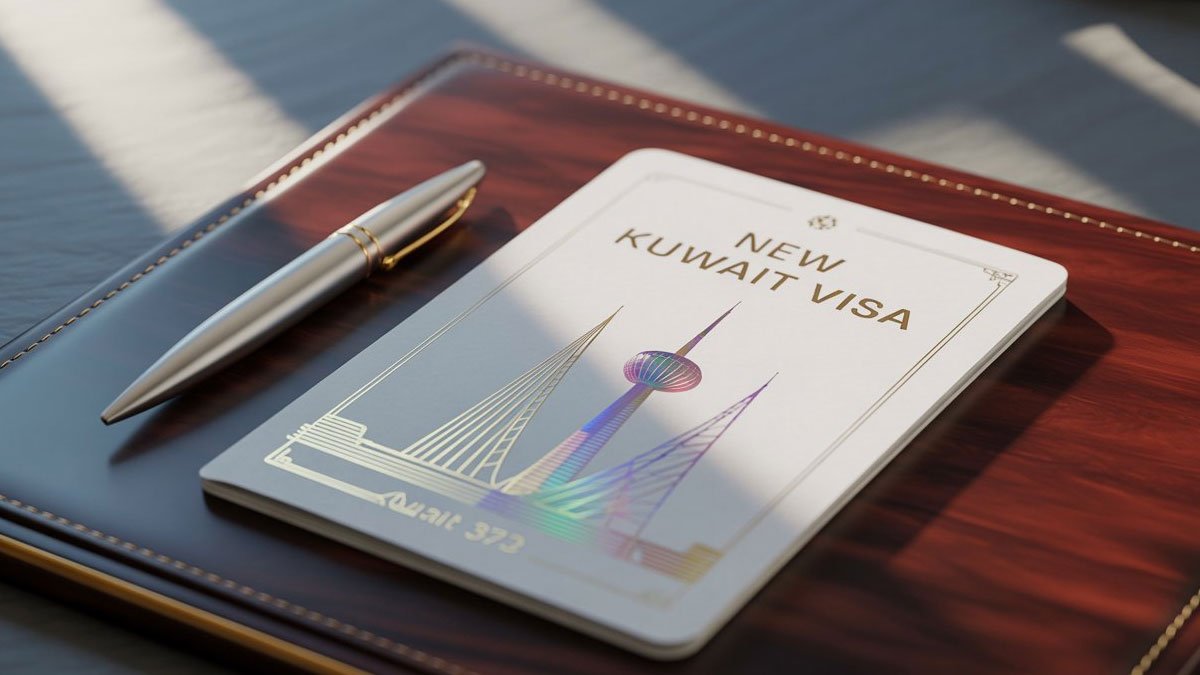Kuwait Unveils Extensive Visa Reforms 2025. Kuwait has announced one of its most extensive visa reforms in decades. The country is now opening its doors to visitors from almost every nation worldwide.
However, Israel remains the only country explicitly barred from entry under an Amiri Decree citing a state of war.
At a presentation titled “Kuwait Visa Platform… New Entry Visas,” Colonel Abdulaziz Al Kandari of the General Department of Residency explained the new four-tier visa system. This system takes effect immediately.
Importantly, Kuwait maintains its 1964 Amiri Decree, which declares a state of war with Israel. Consequently, Israeli nationals are the only ones explicitly denied entry.

The revamped program introduces streamlined digital applications through the “Kuwait Visa” platform. Eligibility varies based on nationality and profession. Specifically:
Unrestricted access (52 countries): Passport holders from countries such as the US, UK, EU/Schengen states, Japan, and Australia can obtain visas without extra requirements, aside from having a passport valid for six months.
GCC residents and professionals: Residents of Gulf Cooperation Council countries and professionals from approved nations qualify. However, they must provide valid residency proof and meet passport requirements.
Financial solvency route (pending implementation): Visitors from other countries may apply by demonstrating financial means. This includes bank statements, hotel bookings, and a refundable security deposit.
Event-specific visas: These are tailored for international conferences and local events. Requirements are adjusted on a case-by-case basis.
Regarding entry categories and durations, Kuwait offers:
Tourist visas: Available as single-entry (1-3 months) or multiple-entry (3-12 months), allowing 30-day stays per entry.
Family visas: Require Arabic-translated kinship proof, valid up to fourth-degree relatives, with similar duration options.
Business visas: Issued upon corporate invitation, valid for a single 30-day stay or multiple entries over one year.
Colonel Al Kandari emphasized that these decisions followed thorough studies of both immediate and long-term implications. The goal is to boost Kuwait’s appeal as a tourism destination while safeguarding national security.
Notably, Kuwait remains the only Gulf state without diplomatic ties or travel provisions for Israelis. This stands in contrast to neighbors like the UAE and Bahrain, which normalized relations through the 2020 Abraham Accords.

This policy also aligns with Kuwait’s historical support for Palestinian rights. For example, a 1964 law bars business dealings with Israeli entities.
The Interior Ministry confirmed that the platform is operational immediately for eligible nationals. Moreover, the third-tier financial solvency system is expected to launch within months.







